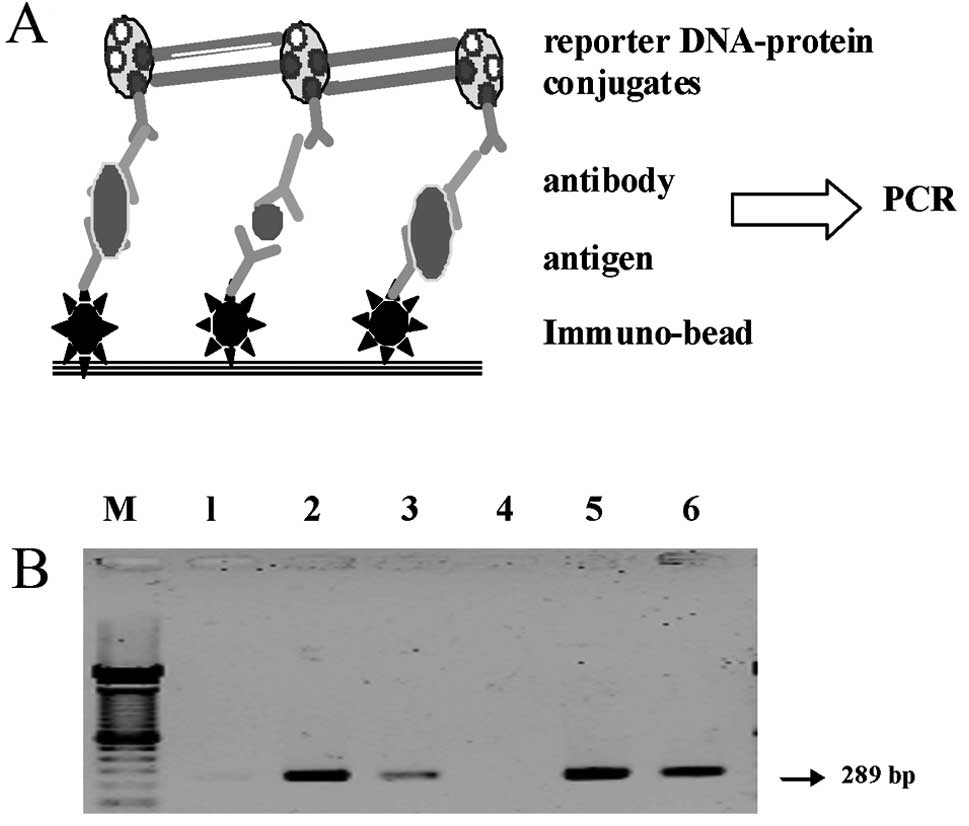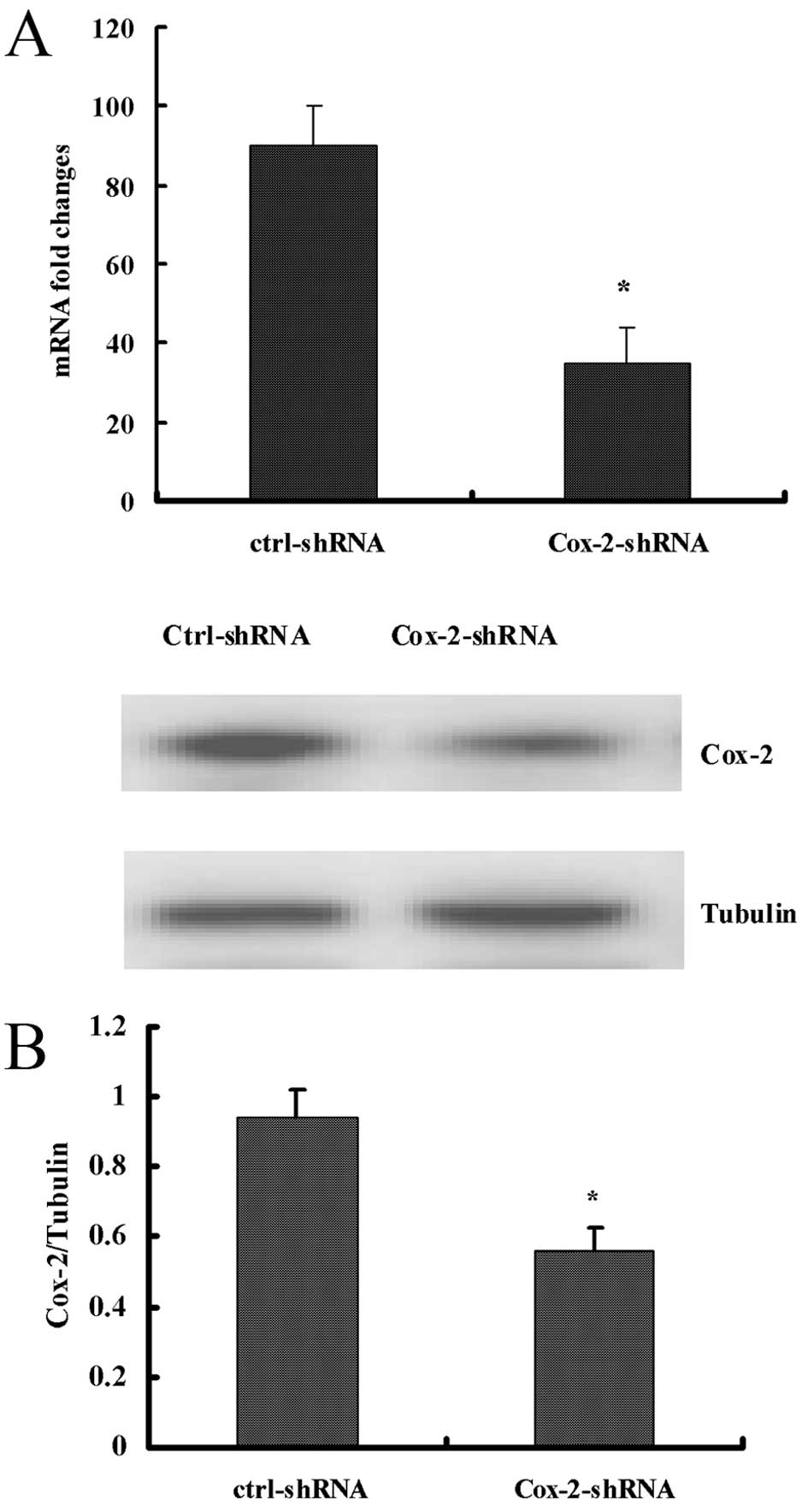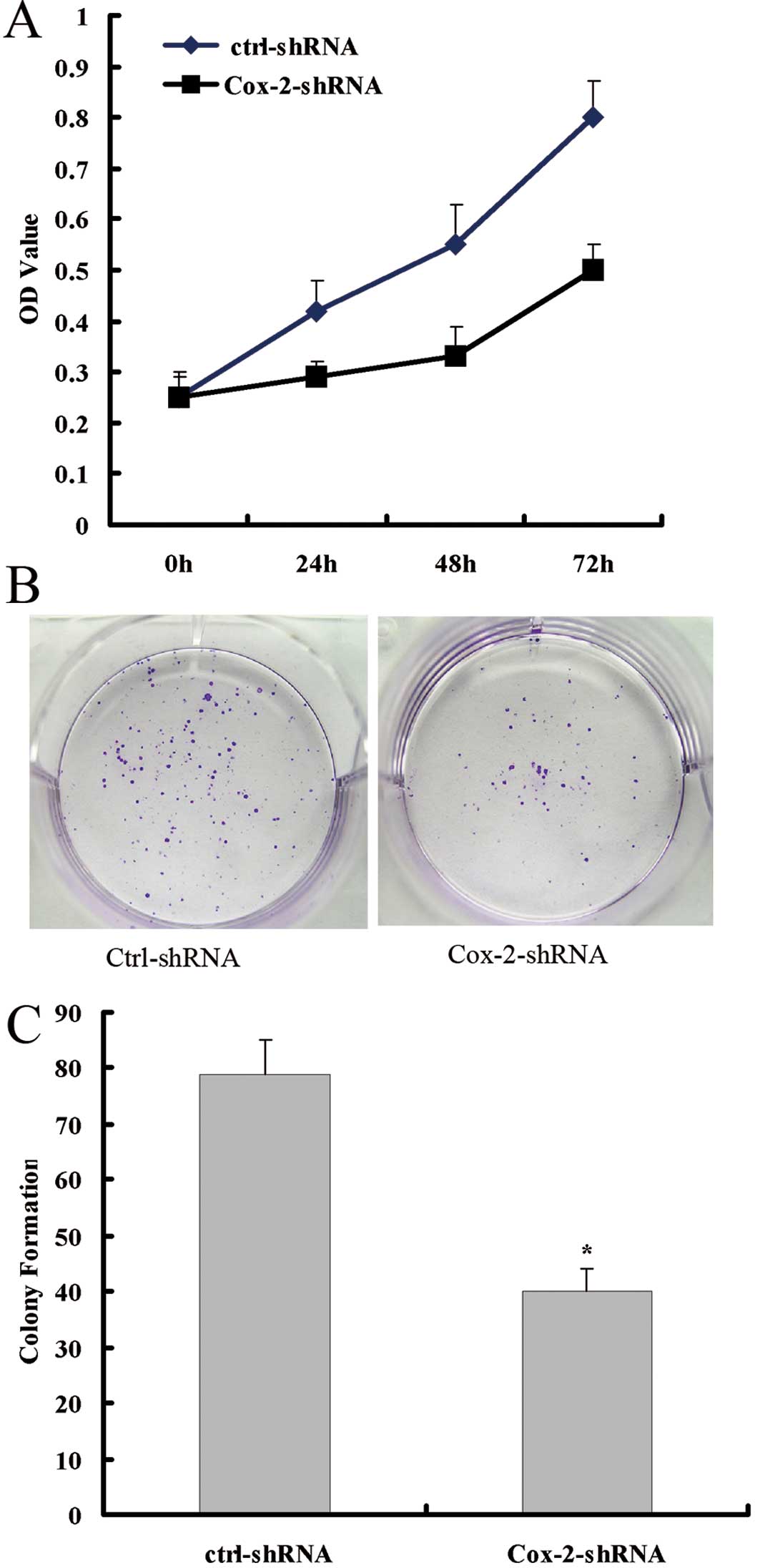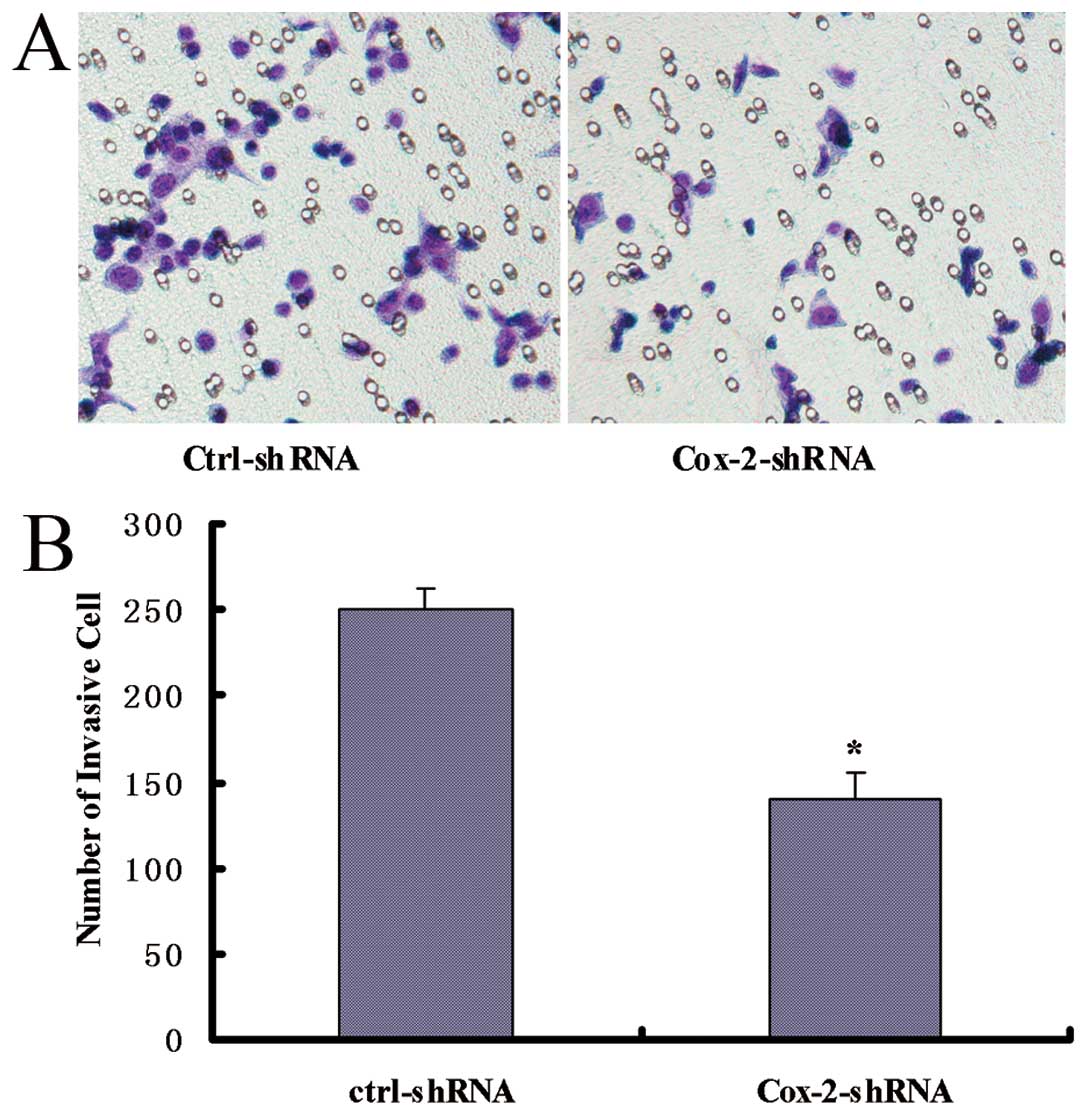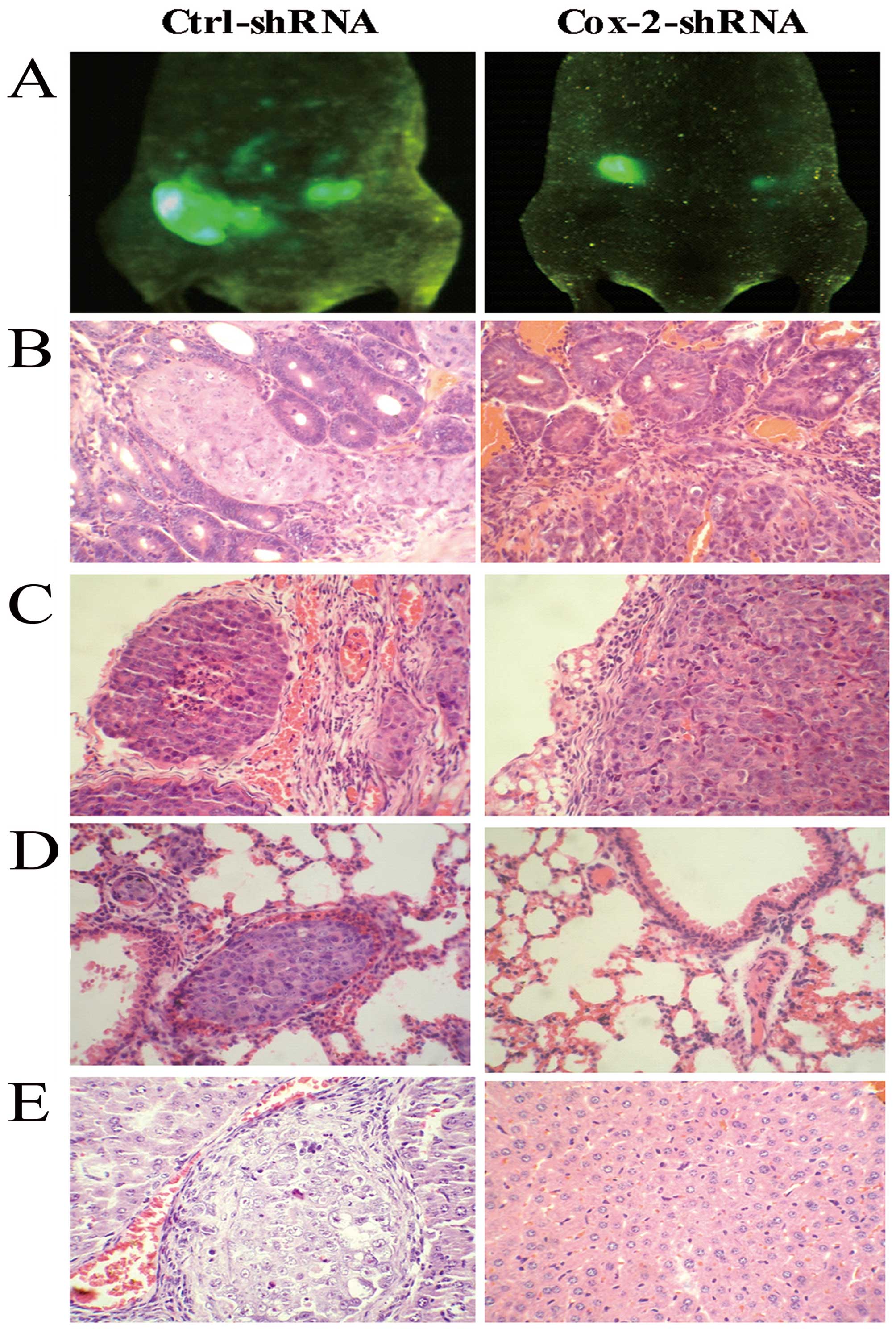|
1
|
Masunaga R, Kohno H, Dhar DK, et al:
Cyclooxygenase-2 expression correlates with tumor
neovascularization and prognosis in human colorectal carcinoma
patients. Clin Cancer Res. 6:4064–4068. 2000.
|
|
2
|
Wendum D, Masliah J, Trugnan G and Fléjou
JF: Cyclooxygenase-2 and its role in colorectal cancer development.
Virchows Arch. 445:327–333. 2004.
|
|
3
|
Möbius C, Stein HJ, Spiess C, et al: COX2
expression, angiogenesis, proliferation and survival in Barrett's
cancer. Eur J Surg Oncol. 31:755–759. 2005.
|
|
4
|
Wang Q, Takei Y, Kobayashi O, Osada T and
Watanabe S: Cyclooxygenase 2 modulates killing of cytotoxic T
lymphocytes by colon cancer cells. J Clin Biochem Nutr. 45:163–170.
2009.
|
|
5
|
Boland GP, Butt IS, Prasad R, Knox WF and
Bundred NJ: Cox-2 expression is associated with an aggressive
phenotype in ductal carcinoma in situ. Br J Cancer. 90:423–429.
2004.
|
|
6
|
Singh B, Berry JA, Shoher A, Ramakrishnan
V and Lucci A: Cox-2 overexpression increases motility and invasion
of breast cancer cells. Int J Oncol. 26:1393–1399. 2005.
|
|
7
|
Wang W, Bergh A and Damber JE:
Cyclooxygenase-2 expression correlates with local chronic
inflammation and tumor neovascularization in human prostate cancer.
Clin Cancer Res. 11:3250–3256. 2005.
|
|
8
|
Petersen S, Haroske G, Hellmich G, Ludwig
K, Petersen C and Eicheler W: Cox-2 expression in rectal carcinoma:
immunohistochemical pattern and clinical outcome. Anticancer Res.
22:1225–1230. 2002.
|
|
9
|
Eberhart CE, Coffey RJ, Radhika A,
Giardiello FM, Ferrenbach S and DuBois RN: Up-regulation of
cyclooxygenase 2 gene expression in human colorectal adenomas and
adenocarcinomas. Gastroenterology. 107:1183–1188. 1994.
|
|
10
|
Kim JY, Lim SJ and Park K:
Cyclooxygenase-2 and c-erbB-2 expression in colorectal carcinoma
assessed using tissue microarrays. Appl Immunohistochem Mol
Morphol. 12:67–70. 2004.
|
|
11
|
Li ZG, Liu TF, Xie WB, Zhou J, Yu L and
Ding YQ: Association of abnormal cyclooxygenase-2 gene expression
with colorectal carcinoma metastasis. Nan Fang Yi Ke Da Xue Xue
Bao. 26:1408–1411. 2006.(In Chinese).
|
|
12
|
Dempke W, Rie C, Grothey A and Schmoll HJ:
Cyclooxygenase-2: a novel target for cancer chemotherapy. J Cancer
Res Clin Oncol. 127:411–417. 2001.
|
|
13
|
Narayanan BA, Narayanan NK, Pttman B and
Reddy BS: Adenocarcina of the mouse prostate growth inhibition by
celecoxib: downregulation of transcription factors involved in
COX-2 inhibition. Prostate. 66:257–265. 2006.
|
|
14
|
Yao M, Kargman S, Lam EC, et al:
Inhibition of cyclooxygenase-2 by rofecoxib attenuates the growth
and metastatic potential of colorectal carcinoma in mice. Cancer
Res. 63:586–592. 2003.
|
|
15
|
Bottone FG Jr, Martinez JM, Collins JB,
Afshari CA and Eling TE: Gene modulation by the cyclooxygenase
inhibitor, sulindac sulfide, in human colorectal carcinoma cells:
possible link to apoptosis. J Biol Chem. 278:25790–25801. 2003.
|
|
16
|
Dubé C, Rostom A, Lewin G, et al: The use
of aspirin for primary prevention of colorectal cancer: a
systematic review prepared for the U.S. Preventive Services Task
Force. Ann Intern Med. 146:365–375. 2007.
|
|
17
|
Chan AT, Ogino S and Fuchs CS: Aspirin and
the risk of colorectal cancer in relation to the expression of
Cox-2. N Engl J Med. 356:2131–2142. 2007.
|
|
18
|
Oshima M, Murai N, Kargman S, et al:
Chemoprevention of intestinal polyposis in the Apcdelta716 mouse by
rofecoxib, a specific cyclooxygenase-2 inhibitor. Cancer Res.
61:1733–1740. 2001.
|
|
19
|
Rashidi B, Gamagami R, Sasson A, Sun FX,
Geller J, Moossa AR and Hoffman RM: An orthotopic mouse model of
remetastasis of human colon cancer liver metastasis. Clin Cancer
Res. 6:2556–2561. 2000.
|
|
20
|
Cao Y, Pearman AT, Zimmerman GA, McIntyre
TM and Prescott SM: Intracellular unesterified arachidonic acid
signals apoptosis. Proc Natl Acad Sci USA. 97:11280–11285.
2000.
|
|
21
|
Yoshimi N, Kawabata K, Hara A, Matsunaga
K, Yamada Y and Mori H: Inhibitory effect of NS-398, a selective
cyclooxygenase-2 inhibitor, on azoxymethane-induced aberrant crypt
foci in colon carcinogenesis of F344 rats. Jpn J Cancer Res.
88:1044–1051. 1997.
|
|
22
|
Yoshimi N, Shimizu M, Matsunaga K, Yamada
Y, Fujii K, Hara A and Mori H: Chemopreventive effect of
N-(2-cyclohexyloxy-4-nitrophenyl)methane sulfonamide (NS-398), a
selective cyclooxygenase-2 inhibitor, in rat colon carcinogenesis
induced by azoxymethane. Jpn J Cancer Res. 90:406–412. 1999.
|
|
23
|
Steinbach G, Lynch PM, Phillips RK, et al:
The effect of celecoxib, a cyclooxygenase-2 inhibitor, in familial
adenomatous polyposis. N Engl J Med. 342:1946–1952. 2000.
|
|
24
|
Caplen NJ, Parrish S, Imani F, Fire A and
Morgan RA: Specific inhibition of gene expression by small
double-stranded RNAs in invertebrate and vertebrate systems. Proc
Natl Acad Sci USA. 98:9742–9747. 2001.
|
|
25
|
Elbashir SM, Harborth J, Lendeckel W,
Yalcin A, Weber K and Tuschl T: Duplexes of 21-nucleotide RNAs
mediate RNA interference in cultured mammalian cells. Nature.
411:494–498. 2001.
|
|
26
|
Soutschek J, Akinc A, Bramlage B, Charisse
K, et al: Therapeutic silencing of an endogenous gene by systemic
administration of modified siRNAs. Nature. 432:173–178. 2004.
|
|
27
|
Lu PY, Xie F and Woodle MC: In vivo
application of RNA interference: from functional genomics to
therapeutics. Adv Genet. 54:117–142. 2005.
|
|
28
|
Charames GS and Bapat B: Cyclooxygenase-2
knockdown by RNA interference in colon cancer. Int J Oncol.
28:543–549. 2006.
|
|
29
|
Bartosch B and Cosset FL: Strategies for
retargeted gene delivery using vectors derived from lentiviruses.
Curr Gene Ther. 4:427–443. 2004.
|
|
30
|
Bailey SN, Ali SM, Carpenter AE, Higgins
CO and Sabatini DM: Microarrays of lentiviruses for gene function
screens in immortalized and primary cells. Nat Methods. 3:117–122.
2006.
|
|
31
|
Abbas-Terki T, Blanco-Bose W, Déglon N,
Pralong W and Aebischer P: Lentiviral-mediated RNA interference.
Hum Gene Ther. 13:2197–201. 2002.
|
|
32
|
Niemeyer CM, Wacker R and Adler M:
Combination of DNA-directed immobilization and immuno-PCR: very
sensitive antigen detection by means of self-assembled DNA-protein
conjugates. Nucleic Acids Res. 31:e902003.
|
|
33
|
Grinde B, Jonassen T and Ushijima H:
Sensitive detection of group A rotaviruses by immunomagnetic
separation and reverse transcription-polymerase chain reaction. J
Virol Methods. 55:327–338. 1995.
|
|
34
|
Xiang CQ, Shen CL, Wu ZR, Qin YQ, Zhang
YY, Liu CZ, Chen JG and Zhang SN: Detection of mutant p53 protein
in workers occupationally exposed to benzidine. J Occup Health.
49:279–284. 2007.
|















